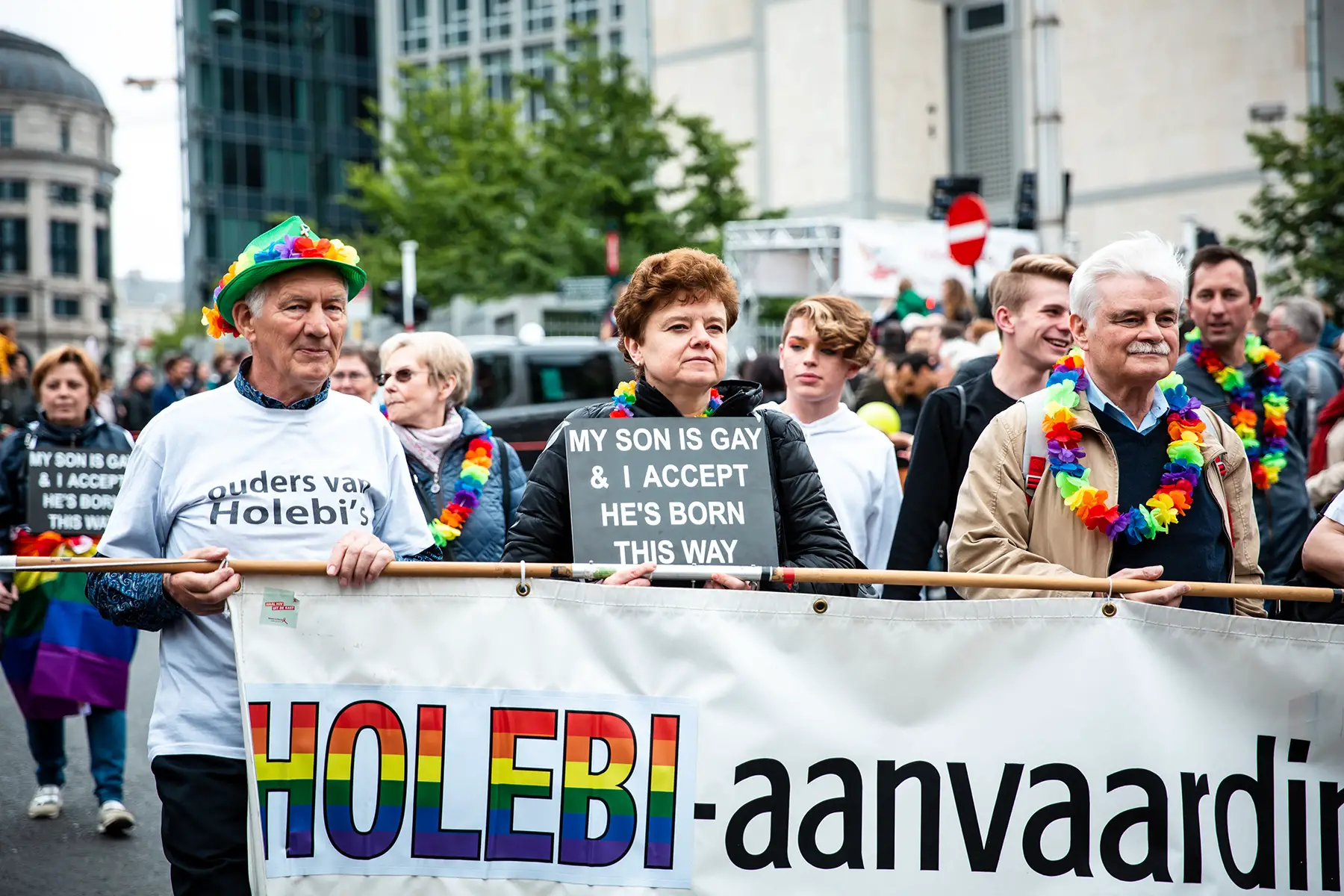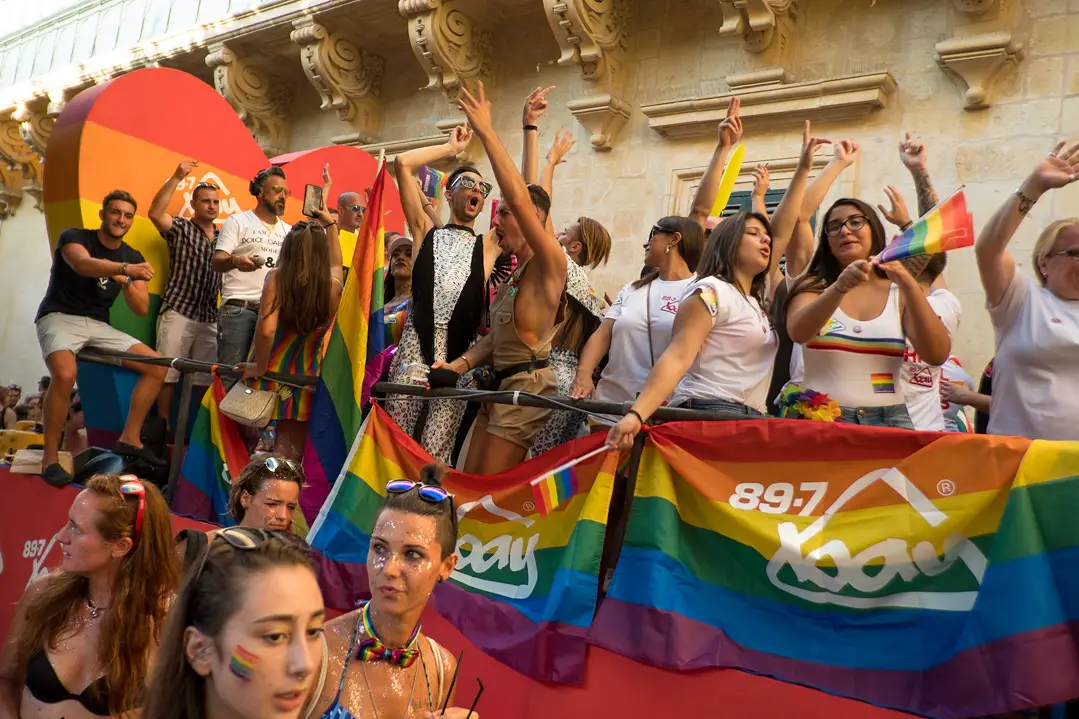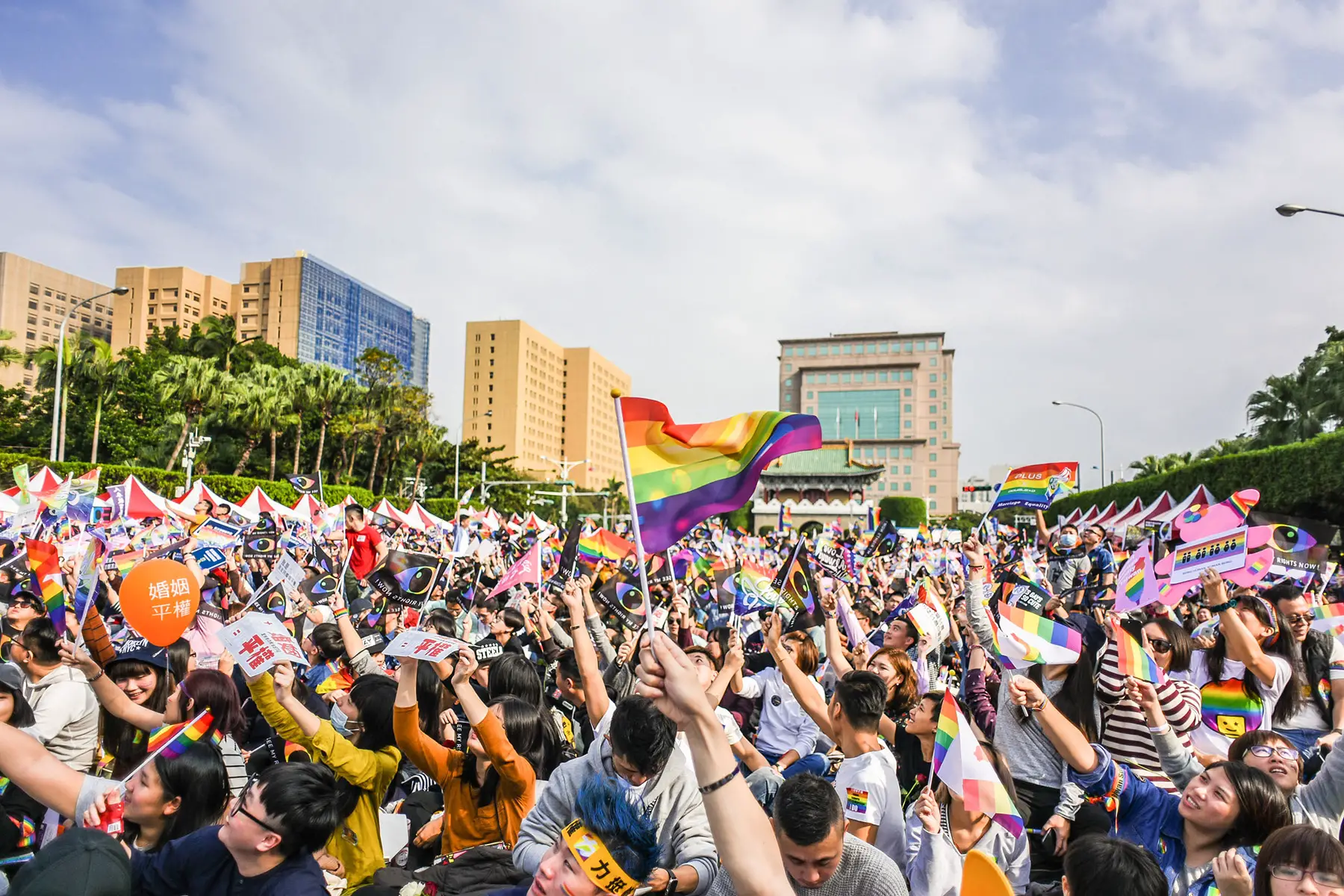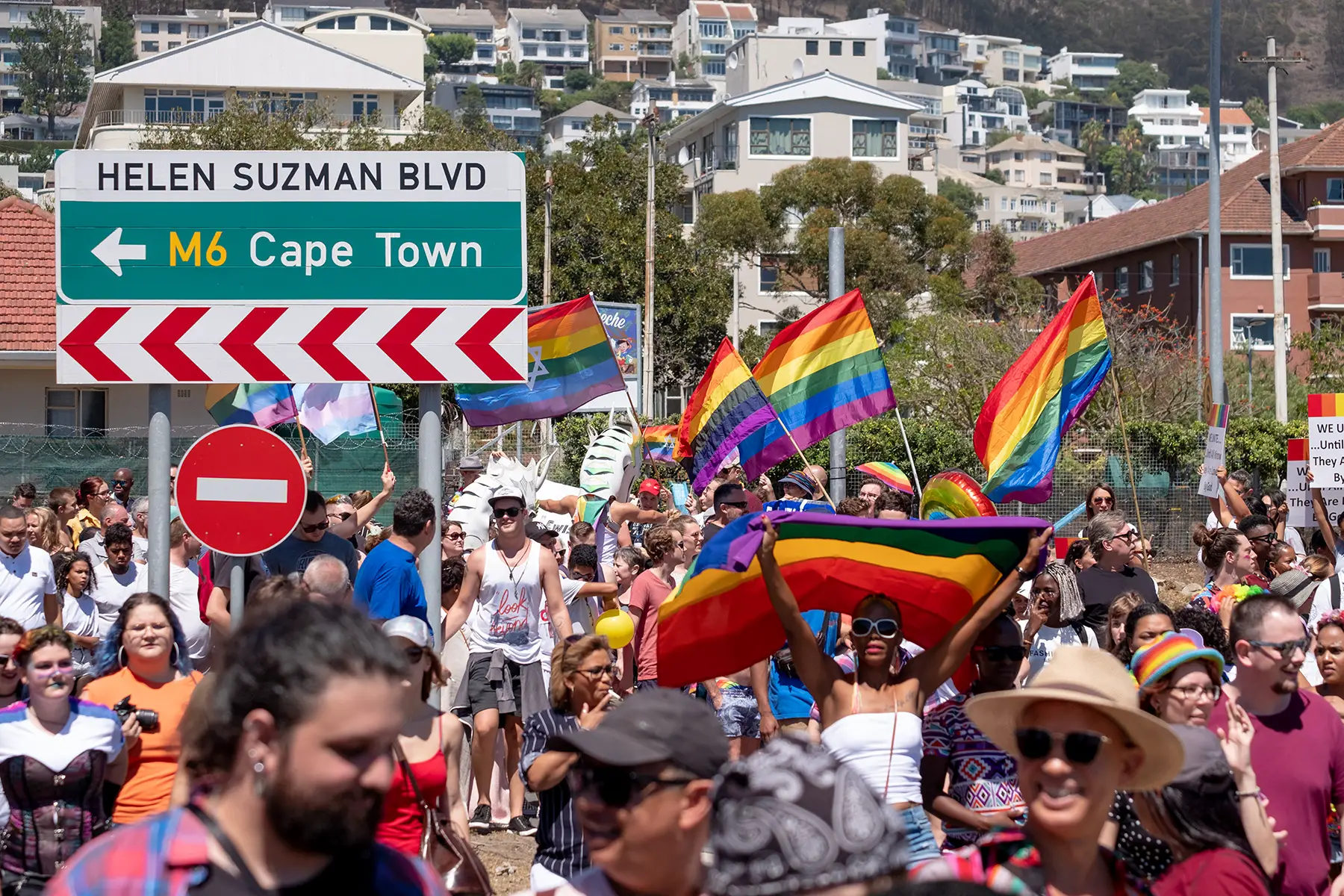Working overseas brings many rewards, from the chance to experience new cultures to career advances. But making the decision can be a greater challenge for LGBTQIA+ expats than it is for heterosexuals.
Besides the usual decisions such as career impact or healthcare quality, queer people often have to consider more severe consequences. Though they may work for an LGBT-friendly organization, national laws can force expats to stay in or return to the closet. As a result, their sexual orientation or gender identity might open them up to harassment or persecution.
To make the decision easier, here’s an overview of the top 10 LGBT-friendly countries for expats, including the liberties, challenges, and vibrant events each one offers:
The Netherlands
As the first country to legalize same-sex marriage in 2001, the Netherlands has an emotional connection with the LGBTQIA+ community that goes way back. The country decriminalized homosexuality in 1811; opened its first gay bar in Amsterdam in 1927; and unveiled the Homomonument – a memorial for gays and lesbians killed by the Nazis – in Amsterdam in 1987.
It’s also straightforward for couples to move to the Netherlands together since expats can sponsor their partners. To do this, they must prove they have an exclusive relationship, sufficient income, and pass the integration exam.
Same-sex couples are supported with comprehensive LGBT-friendly rights, including:
- Adoption
- Anti-discrimination in employment, housing, health care, and social services
- Equal tax and inheritance rights
- Surrogacy services

Additionally, transgender individuals are also supported by Dutch legislation. This includes (but is not limited to) the following:
- Children can change their gender
- Dutch nationals can apply for gender-neutral passports
- Trans adults can self-identify without a doctor’s statement
According to the International Lesbian, Gay, Bisexual, Trans and Intersex Association (ILGA Europe), The Netherlands scores roughly 59% on the Rainbow Map (2024). While this bypasses the European average of 40%, the country fares worse than its neighbors when it comes to hate crime and hate speech and lack. Medically unnecessary surgeries are also still performed on intersex children.
LGBT+ events in the Netherlands
Amsterdam, The Netherlands’ vibrant capital, has a vibrant queer-friendly culture that services the LGBTQIA+ community. The biggest event in the city (as well as the country as a whole) is Queer & Pride Amsterdam, a two-week-long celebration full of canal parades, pride walks, street parties, and more.
Pride isn’t only celebrated in Amsterdam, however. Many cities hold their own Pride events, the biggest of which are in Utrecht and Rotterdam.
Of course, LGBT-friendly events are held throughout the year all over the country, with plenty of bars, meet-ups, and cultural happenings to keep you busy.
Belgium
LGBTQ+ rights in Belgium are among the most progressive in the world. So much so, the country ranks second on ILGA’s Rainbow Map, scoring 78% (a whopping 38% above the European average).
Like The Netherlands, Belgium’s LGBTQIA+ history goes way back. Same-sex sexual activity was made legal way back in 1795 and same-sex marriage was legalized in 2003.
Non-heterosexual couples enjoy the same rights as opposite-sex couples in the country, including the right to adopt and anti-discrimination in all spheres. LGBTQIA+ expats can also marry in Belgium if one partner has been living there for at least three months. What’s more, if you’re a non-EU/EEA national living in the country, you can sponsor your partner on a Belgian family reunification visa.

Transgender rights are highly advanced in Belgium, where individuals can change their legal gender without surgery and receive gender-affirming health care.
However, there is still more work to be done. Most notably, ‘non-binary’ is not an officially recognized gender and the country has yet to ban unnecessary sexual determination surgeries on babies.
LGBT-friendly scene in Belgium
Belgium has a large and well-developed LGBT-friendly scene that caters to a diverse range of orientations and preferences. May is generally Pride Month across the country, with Brussels Pride being the biggest parade of them all. Subsequently, expect to find active queer-friendly nightlife in Antwerp, Bruges, Ghent, Liège, and Ostend.
Some other popular LGBT-friendly events in Belgium are:
- La Demence: Held in Brussels, this monthly large-scale gay club party that attracts people from across the globe
- Pink Screens Festival: A film festival in Brussels that celebrates gender and sexuality in all its different forms
Spain
For a Catholic country, Spain is extremely LGBTQ-friendly and ranks fourth on the ILGA Rainbow Map. Same-sex marriage in the country has been legal since 2005 and Spanish literature, music, and cinema frequently explore themes of gender identity and expression.

Same-sex expat couples living in Spain have several legal rights when they register their partnership. These include:
- Adoption
- Automatic parenthood recognition on birth certificates
- Equal treatments for tax purposes (including inheritance tax)
- Protection from domestic violence
The country is also one of the world’s most supportive of trans rights. As of 2023, anyone over 16 years of age can change their official gender; while those between 12 and 16 can do so with permission from a judge or guardian. Furthermore, unnecessary surgery on intersex children is banned.
LGBT+ events in Spain
Madrid Pride is the largest LGBT-friendly event in the Spanish calendar, consisting of a week of celebrations, street parties, and cultural events every July. Other large-scale Pride celebrations in Spain also take place in Barcelona, Sitges, and Ibiza.
Throughout the year, make sure to also check out these LGBT+ festivals:
- Circuit Festival Barcelona: Renowned as being the biggest gay-friendly event in Europe, this week-long dynamic festival consists of beach parties, a waterpark, and club nights
- Velvet Ibiza: A women’s-only festival, this queer multi-day celebration takes place in a beach resort in Ibiza, complete with star-studded DJ line-ups, sports, and pool parties
Malta
Valletta doesn’t immediately spring to mind when you think of the world’s gay capitals, but tiny Malta consistently appears in first place on ILGA’s Rainbow Map, scoring a tremendous 87%. This is thanks to the island’s secure laws on anti-discrimination, gender recognition, and hate crime and hate speech.

Transgender and intersex rights are amongst the strongest in the world in Malta, allowing people to legally change their gender without surgery.
Same-sex marriage has been legal since 2017 and there are no minimum residency requirements, meaning LGBTQIA+ expats can easily tie the knot. Single individuals and couples, regardless of sexual orientation, can also enjoy adoption rights and donate blood.
LGBTQ+ events in Malta
Malta holds its Pride Parade every September in Valletta, often with local politicians in attendance. During the country’s Pride week, you also can take advantage of club nights, free STD testing, and guest talks.
Given the island’s smaller size, the queer scene may not be as well developed as other European countries. Nevertheless, the majority of Malta’s nightlife venues and beaches are LGBT-friendly and welcome the community.
You can also check out these events catered to the LGBTQIA+ community:
Thailand
If you’ve got your heart set on Asia, Thailand is one of the most LGBT-friendly countries to move to.
Although the Kingdom decriminalized homosexuality back in 1956, many of Thailand’s queer milestones have come into force in recent years. Most notably, the same-sex marriage bill was only approved in 2024, making it the first Southeast Asian country to do so. This enables gay couples to have the same rights as heterosexual couples, including:
- Adoption
- Inheritance rights
- Healthcare settlements

Public opinion is also generally positive towards the LGBTQIA+ community. According to a poll by the National Institute of Development Administration, nine in 10 Thai people accept LGBT+ members as friends, colleagues, and family members.
Despite this, there is much left to be done to improve Thai LGBT rights, particularly for transgender individuals. Among the issues are the following:
- Third or non-binary genders are not recognized
- Transgender people are not legally recognized on official IDs
- Transgender people must enrol in the military with their assigned birth gender
LGBTQ+ events in Thailand
For the latest LGBT-friendly events in Thailand, check out Thai LGBT Connect and TravelGay. Here, you can find out about daily events across the country, from club nights to easygoing meet-ups.
Pride is celebrated in different months in Thailand, depending on where in the country you are. When it comes to the biggest celebrations, Bangkok and Chiang Mai are held in early June, while Phuket takes place in April.
To close off the year with a bang, check out White Party Bangkok. One of the largest New Year’s festivals in Asia, it takes place over multiple days and is full of themed parties, performances, and DJ line-ups.
Taiwan
With Taiwan becoming the first country in Asia to legalize same-sex marriage in early 2019, LGBTQ+ interest in the island has skyrocketed. Thousands of couples have since tied the knot, including plenty of expats.
While the government banned discrimination based on sexual orientation in 2017, homosexuality has never actually been illegal in Taiwan. With its welcoming policies, LGBTQ+ couples can now adopt and queer individuals can serve openly in the military.

Taiwan is also progressive when it comes to trans rights. The country held its first transgender marriage in 2013 and shortly afterward appointed its first transgender minister, Audrey Tang.
Although the Taiwanese government announced plans to introduce a third gender on official documents in 2020, this has yet to be put into practice.
LGBT+ scene in Taipei
Taipei has one of Asia’s most dynamic LGBTQ+ scenes. Besides bars, clubs, and cafés, the country also hosts a queer-friendly beach (Sha Lun Beach) and two popular hot springs.
The crowning LGBT+ event in the country is Taipei Gay Pride, which remains the largest queer celebration in all of Asia. An estimated 180,000 people attend each year in October.
New Zealand
Often voted one of the best places to live as an expat, progressive New Zealand has a fantastic record when it comes to LGBTQ+ rights. The country’s constitution is queer-friendly, offering several protections based on sexual orientation. What’s more, there are also several out-and-proud gay and transgender members of parliament.

Today, same-sex marriage is legal, and unmarried couples of any gender can adopt children jointly. The country also recognizes married or de facto relationships for expat couples. To bring loved ones together, internationals can sponsor their partner, but must at least have permanent residence to do so.
Despite its forward-thinking policies, unnecessary surgery on intersex children is still legal in the country. Additionally, workplace and housing discrimination is only limited to sexual orientation and doesn’t extend to gender.
LGBTQ+ events in New Zealand
New Zealand has a reasonably sized queer scene that extends across the country. Wellington and Auckland boast the largest number of gay bars and clubs, but LGBTQ+ residents in Tauranga, Christchurch, Dunedin, and Hamilton are also guaranteed a good night out.
Pride parades have been organized since the early seventies and are typically held in February. The largest celebration is in Auckland, which is full of performances, art exhibitions, and tours.
To celebrate Pride in a unique way, make sure to also check out Winter Pride. Hosted in Queenstown in August, this LGBT+ winter festival is full of music, skiing, snowboarding, and ice skating.
South Africa
As the only African country to legalize same-sex marriage, the Rainbow Nation is an inspiration. The 1996 constitution banned discrimination on the grounds of sexual orientation and LGBT+ people have been able to marry since 2007.
Same-sex couples can adopt children and arrange IVF or surrogacy. Expats can also get married in South Africa, while partners of expats can apply for either a spousal or life partner permit to move to the country.

Do be aware, however, that acceptance of LGBT+ members can be a mixed bag in South Africa. Attitudes to queer communities are shaped by a complex history influenced by morals, colonialism, the lingering effects of apartheid, and the human rights movement that contributed to its abolition. As a result, attitudes towards non-heterosexual people – particularly lesbians and trans individuals – can be more hostile in rural, less urbanized areas.
Members of the LGBT+ still have other challenges facing them in South Africa. For one, people who want to change their gender legally must undergo medical treatment, surgical treatment, or hormone replacement therapy. Additionally, ‘non-binary’ is yet to be recognized as a legally official gender.
LGBTQ+ events in South Africa
Cape Town has a reputation for being the best gay scene in Africa, hosting plenty of summer events including Mother City Queer Project and Cape Town Pride. Johannesburg, too, has a wide and inclusive scene, and several smaller towns across the country also have gay bars or events.
Pride parades, in particular, have been widespread since at least 2012, with more than a dozen annual events.
Argentina
Latin America’s beacon of LGBTQIA+ rights, Argentina’s queer history goes back to the indigenous Mapuche and Guaraní people. These groups not only accepted the third gender, but also treated male, female, transgender, and intersex people as equal.
Today, Argentina has a thriving queer scene that welcomes LGBTQIA+ locals and expats alike. It allows same-sex expat couples to get married and adopt, while lesbian couples have equal access to in vitro fertilization treatment.

Transgender rights in Argentina are among the most advanced worldwide. Thanks to the 2012 Gender Identity Law, people can also change their gender without facing medical interventions.
LGBTQ+ friendly Argentina
Buenos Aires is Argentina’s gay capital. It has been an LGBT+ tourist destination since the early 2000s, and is home to the largest Pride celebration in the country, taking place every November. Expat-friendly neighborhoods such as Palermo Viejo and San Telmo also boast several gay-friendly establishments.
Among other popular LGBT-friendly events in Argentina, make sure to check out:
- Buenos Aires International Queer Tango Festival: Taking place in November, this festival celebrates the queer tango scene, with plenty of dance classes and shows for all to enjoy
- Buenos Aires Diversa: This cultural festival celebrates the diversity of the LGBTQIA+ community through art, film, music, and more
Canada
With its liberal policies and welcoming attitudes to immigration, Canada has long attracted LGBTQ+ expats. High quality of life and gender-affirming healthcare services are also a bonus.
Since 1982, the Canadian Charter of Rights and Freedoms has guaranteed fundamental human rights to the LGBTQ+ community. Same-sex marriage has been legal since 2005 and same-sex couples can adopt children and access altruistic surrogacy. They can also enjoy equal social and tax benefits, including those relating to pensions, old age security, and bankruptcy protection.

Trans people are also equally supported and can change their names and legal sex without surgery. If you wish to undergo a procedure, you can use public healthcare coverage. You can also be classified as non-binary on your passport.
LGBT+ scene in Canada
As is the case elsewhere, LGBTQ+ life tends to be concentrated around the major cities, particularly Toronto, Vancouver, and Montreal. Edmonton and Winnipeg also boast queer-friendly scenes.
Pride parades occur across the country each summer with participation from regional and national politicians. Look out for the ones in Toronto and Vancouver for some of the biggest Pride celebrations in all of North America.
Useful resources
- ILGA Rainbow Map: Compare LGBT-friendly legislation across all of Europe’s countries
- Equaldex: Explore LGBTQIA+ rights across the world, including the liberties and obstacles each country faces







